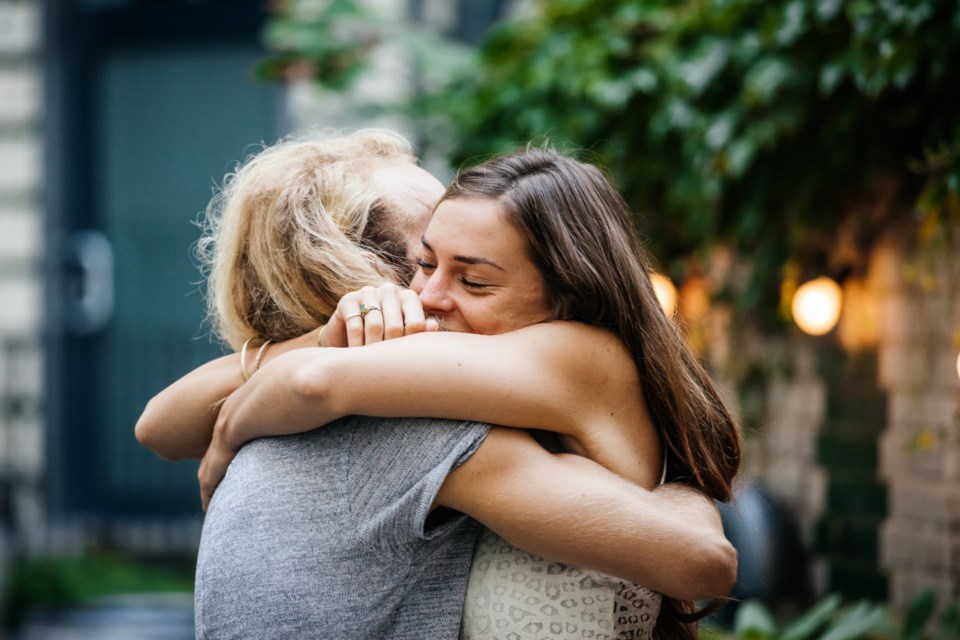Has anyone else noticed a sort of collective grumpiness among us? It may be a COVID-19 pandemic hangover or a reaction to today’s economic uncertainty, or something else altogether, but I’ve noticed folks are not as happy as they used to be.
A recent poll by the Angus Reid Institute confirms my suspicions: A lower percentage of people report being “very” or “pretty” happy than they did seven years ago. In 2016, 79 per cent of those polled reported being happy, but in 2023, that number fell to 70 per cent. Fully one-third of those surveyed said they are dissatisfied with their mental health and the number is even higher for young women, with nearly half saying their mental health could be better. Many of us are isolated – Statistics Canada reported in 2021 that one in 10 Canadians always or often feel lonely.
Really, who can blame folks for not feeling so happy?
We’ve just come through the first pandemic in living memory, inflation has driven food and shelter prices through the roof and interest rates are high. The ghastly conflicts in Ukraine and Israel-Gaza show no end in sight.
There are elections coming up in several countries, notably including the United States, next year. Looking south, the political choices don’t spur much confidence or optimism and in Canada we will face our own uninspiring federal election by the end of 2025.
The opioid crisis is worsening in B.C., with deaths now reaching seven each day. To top things off, there is climate change, which set Canada and the world on fire this summer and is now bringing us snow-free ski hills and balmy weather. Two flowers on my deck are blooming as I write this. It’s freaky.
But here we are. We must do what we can to improve all the above, while trying to remain resilient and healthy ourselves.
Now I’ve depressed you when what I promised was ideas for how to be happier. Let’s get into that. First, listen to psychiatrist Robert Waldinger, who leads the Harvard Study of Adult Development.
“When we study hundreds of people over their entire adult lives, the people who turn out to be the happiest and the healthiest are those who have good, warm connections to others,” Waldinger says in a YouTube video about his research.
Such relationships not only keep people physically healthy, but they also keep their brains sharper and they age more slowly, he says.
“We found that people had less depression, they were less likely to get diabetes and heart disease and that they recovered faster from other illnesses when they had better connections with other people,” Waldinger said.
How does it work? His theory is that people who can talk about their stresses with friends or family are able to better maintain their happiness and their health. He suggests working on social fitness in a similar way to physical fitness.
Even the Canadian government is trying to boost this type of social resilience. In 2022, the government established the Canadian Institute for Social Prescribing as a hub for organizations that connect people to non-medical resources to improve their health, such as prescribing a walk in nature or to join a club of some kind.
If you’re feeling sad or lonely, reach out. Even if you’re not particularly despondent or grumpy, make your relationships a priority. Waldinger suggests creating routines with friends that keep you in touch – go for a walk every Monday with one friend or meet for coffee on Saturdays with another.
Don’t take relationships with the people you live with for granted. Make a point of going on new adventures together or creating fun routines.
If you live alone and don’t have any or many connections, try to create more. Even talking to strangers can help. Strike up a conversation in a lineup or smile and chat a bit with the server in the coffee shop.
Best of all is joining a group involved in something you care about – volunteer for a shoreline clean up or take a dance class. Let people know you’re interested in being their friend, meeting for coffee or a walk in a safe space to get to know each other.
When you focus on your relationships, it’s a two-way street. Not only will your health and happiness benefit, but you will also improve the health and happiness of others, multiplying the effect. Try it and see what happens.
Tracy Sherlock is a freelance journalist who writes about education and social issues. Read her blog or email her [email protected].



